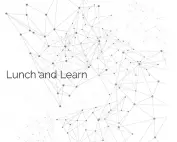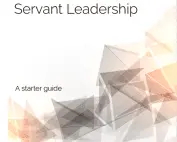Social intelligence and influential leadership
We are all socially skilled creatures, albeit to varying degrees. The more social intelligence you have, the more people will see you as inspiring, charismatic, genuine and capable of being a leader. What most people don’t know is they can develop social intelligence with a little bit of practice.
0 1
Your Social Awareness Makes You a Reliable Colleague
Emotional and Social intelligence cannot be measured by an IQ test. Being socially intelligent relies upon your self-awareness and your ability to regulate your emotions, behavior, reactions, and impulses in a social situation. There are several types of self-awareness, including knowledge of one’s feelings, motives, desires, and emotional skills. Being self-aware makes you more reliable in the office because you act more consistently and people know what to expect from you. But to get there, you have to be honest with yourself. For example, are your public speaking skills as good as you think they are? Do other people think they are good?
Possessing the ability to read people and understand how others see you means you’re socially astute. You possess insight into social roles and how you can work with and influence others in your organization based on knowing their perceptions of you. You can alter how people see you through impression management, and can better navigate the tricky waters of team dynamics and social interactions.
Daniel Goleman, famed for his research on emotional intelligence and author of the book Emotional Intelligence: Why It Can Matter More than IQ, recently wrote about how you can sharpen your social awareness in the Harvard Business Review:
- Consider the differences between how you see yourself and how others see you. Are you being biased or unaware of your behavior?
- Ask for a reality check by soliciting feedback from your colleagues. Tell them to be honest.
- Be open-minded and don’t get defensive when receiving feedback.
- Be open to changing your behavior based on the feedback. You should recognize this as a positive experience for making a productive change.
- Reflect on what’s said and provide feedback to yourself. How do you feel about the outcomes and impact of your actions based on what you’re hearing?
Prefer to listen?
“A conversation is a dialogue, not a monologue. That’s why there are so few good conversations: due to scarcity, two intelligent talkers seldom meet.” ― Truman Capote
0 2
Why is Empathy Important in the Workplace?
Empathy is the ability to understand and share the feelings of others. You can use it in the office to build relationships as well as ensure you understand the messages your team conveys to you.
Empathy is often a hidden driver for the charisma we see in great leaders. A 2008 article on Social Intelligence in the Harvard Business Review describes how a leader’s empathy creates an ‘interconnectedness’ with the people around them. A leader can, “exhibit empathy and become attuned to others’ moods—literally affect both their own brain chemistry and that of their followers.”
Empathy is also a means to demonstrate you’re listening and you respect others’ opinions. Socially intelligent people actively listen to make certain they understand what is being conveyed. They pay attention to the nonverbal details of a conversation such as gestures, facial expressions, eye contact, and body movements. These active listening skills help us empathize with our colleagues.
If you want to grow your active listening abilities, this article is essential reading, Ten Soft Skills You Need.
An empathetic listener does so without judgment. You process the conversation before reacting. You ensure you’ve heard things correctly and aren’t jumping to conclusions. You also make sure not to dismiss the feelings of others with trivializing comments such as, ‘It’s not so bad.’
Actively listening without judgment helps create rapport and makes people feel appreciated. You’re unleashing the power of human connection.
“The sign of intelligent people is their ability to control emotions by the application of reason.” – Marya Mannes
0 3
How to read the room and have engaging conversations
Reading a room is a handy skill whether it’s a boardroom, industry conference hall, or the holiday party. Social intelligence involves taking the temperature of the crowd and understanding:
- Why are people gathered?
- Who is present?
- What are the expectations?
- What common interests are shared by the room?
Some of this will be easily detectable, but other parts will require flexing your social intelligence and understanding what’s not said. Pay attention to the room’s non-verbal cues.
Non-verbal communication accounts for up to 93% of human communication. Are people raising their eyebrows? They are likely interested in what you’re saying. Are they rolling their eyes or letting them wander? They are probably less interested. Understanding the things people don’t say informs what you should say next.
In addition to non-verbal communication, there is paraverbal communication, consisting of 3 areas: pitch, tone, and speed of speech. Tune your ear to the sound, not the words, and you’ll gain greater insight into what’s being said, which allows you to connect and establish rapport.
For most people, when they think of a conversation, they think of talking, but a conversationalist knows it’s about listening and observing. To improve your conversational skills, observe verbal and non-verbal cues. Look at their body language. Do they appear annoyed or bored? Are they maintaining eye contact or nodding? Listen to their words, notice their tone, and be aware of their body language. People like it when we actively listen.
According to Psychology Today, a good listener gives their conversation partner a ‘feeling as if they had a good “connection” with him or her.’ Conversations are opportunities for connecting and building social relationships. Our successes and failures in business ventures can sometimes come down to a single conversation.
Before you speak, think about what you’ve observed. What makes this person tick? Be tactful of how they speak. Are they formal? Do they use slang? Practice the science of human relationships. Be emotionally intelligent. Each conversation is its own game with unique rules about what’s expected and what you cannot say. The more you observe, the more people will think you are a good listener, and thus, the more they feel they’ve connected with you.
Social intelligence is putting your interpersonal skills to use for connecting with and inspiring others. There are those who effortlessly connect and inspire, but you may need to work your social brain. Self-awareness, empathy, and communication are people skills that grow the more we focus on them and apply them. If you’d like to learn more about connecting with and influencing people, take a look at our course Social Intelligence: Grow Your Confidence.
Common Questions
Brian Abbey is a writer with 25 years experience in tech, marketing, higher education, and startups. An American, now living in Romania, he creates content for publishers and websites as well as multinational firms in Asia, Europe, and the United States, garnering over 100K readers on topics ranging from medical trends to artificial intelligence and university student engagement.
This is one of our executive briefings taken from our series of professional online business short courses from ELL. We have over 100 courses online with over 1,000 hours of e-learning covering a wide range of topics across leadership, management and personal & professional development created by industry experts and learning professionals.
Emotional Intelligence Course
Social intelligence is all about understanding your environment and those around you in order to make a positive impact and influence on people and situations. Develop your confidence levels in any situation, interpret seemingly invisible clues to what’s working and make positive connections during every interaction. Our course will benefit you in all walks of life and will really help your people skills through the use of tools such as active listening, understanding body language and refining your empathy.
By the end of this course on social intelligence, you will be able to
- Understand the key areas to help build rapport and connection with people
- Develop empathy and emotional intelligence in every walk of life
- Understand the unspoken clues that other people are giving when you’re with them
In each of our business courses, you get access to around six hours of e-learning that you can watch, listen and read. There are usually 100 questions and at the end of the course you will receive a certificate of completion that you can use against any personal or professional development requirements. As well as the course, you also receive a FREE e-book that you can read on your Kindle or other e-reader. You also get a FREE audiobook of the course so you can listen to the whole course uninterrupted on your device.















